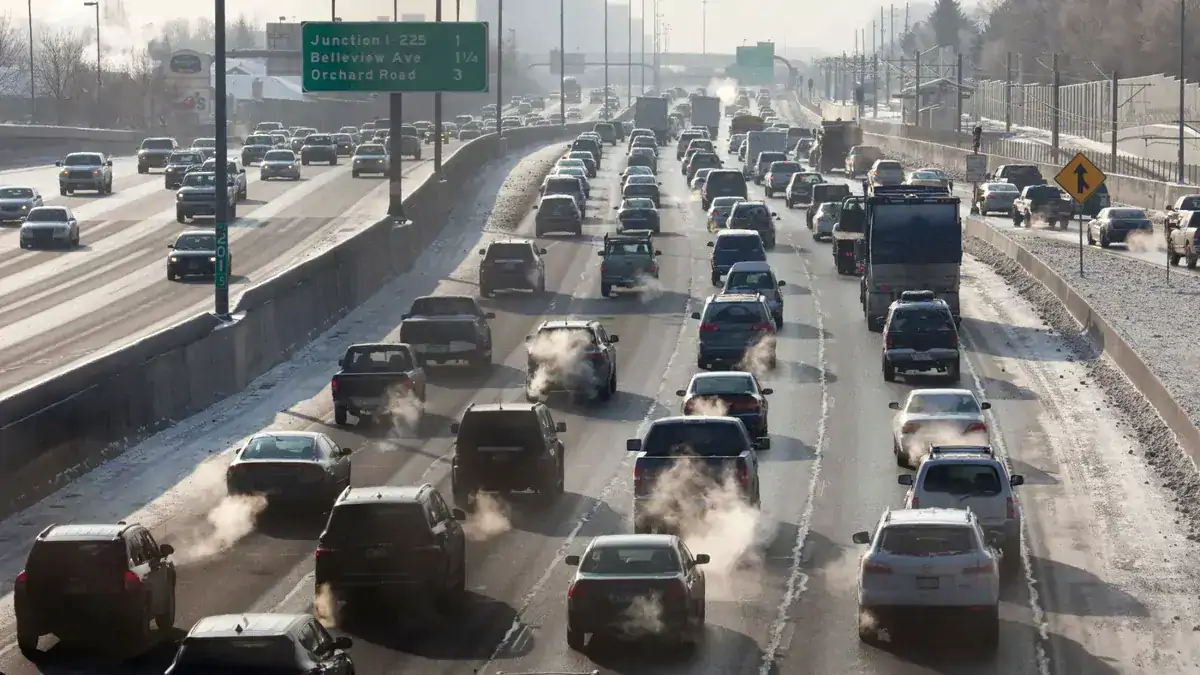After facing pressure from the auto industry and labor unions, the US government is reportedly planning to revise its ambitious plan to slash tailpipe emissions and boost electric vehicle sales.
EPA to lower emissions requirements through 2030
According to Reuters, two sources familiar with the matter said that the Environmental Protection Agency (EPA) will soon announce a new regulation that will ease the proposed yearly emissions requirements through 2030 as part of its broader plan to reduce greenhouse gas emissions from the transportation sector.
The EPA had previously proposed in April 2023 that automakers should aim for a 56% reduction in new vehicle emissions by 2032 compared to 2021. This would have required automakers to produce 60% of electric vehicles (EVs) by 2030 and 67% by 2032 to meet the stricter emissions standards.
However, the sources said the revised regulation is expected to lower the EV targets to less than 60% by 2030 and increase the emissions requirements more gradually from 2030 to 2032.
Automakers and unions push for more flexibility
The revision comes after the auto industry and the United Auto Workers (UAW) union urged the Biden administration to reconsider its aggressive EV plan, arguing that it was unrealistic and unaffordable for many consumers and workers.
The Alliance for Automotive Innovation (AAI), a trade group representing major automakers such as General Motors, Ford, Toyota, and Volkswagen, said that the initial EPA proposal was "neither reasonable nor achievable" and suggested "adopting requirements for 40 to 50% (electric, plug-in electric, and fuel vehicles) in 2030." EVs accounted for about 8% of sales in 2023.
AAI CEO John Bozzella said on Sunday that the next few years are critical for the EV market and that the government should "give the market and supply chains a chance to catch up, maintain a customer's ability to choose, let more public charging come online, let the industrial credits and Inflation Reduction Act do their thing and impact the industrial shift."
The UAW, which endorsed Biden in January even as former President Donald Trump claimed that Biden's vehicle rules threatened auto jobs, also said that the EPA proposal should be revised to increase stringency "more gradually" and occur over a "greater period of time."
Despite the expected revision, the Biden administration has yet to back down from its commitment to accelerate the transition to clean energy and combat climate change.
In a statement on Sunday, Ali Zaidi, the White House climate adviser who has been in talks with automakers regarding tailpipe rules, expressed the United States' commitment to using smart investments and standards to ensure that American workers take the lead in the global auto sector rather than following it.
Meanwhile, an EPA spokesperson confirmed that the proposal is still under interagency review and that the agency plans to finalize a rule that will reduce dangerous air and climate pollution and provide economic benefits.
Additionally, the EPA is expected to address the concerns of automakers, including reducing particulate matter from gas-powered vehicles, eliminating "enrichment" to boost engine performance, and revising the fuel economy rating for EVs.
The New York Times also reported the EPA plans earlier which said the revised proposal ramps requirements from 2030 through 2032.
Last week, the Alliance for Automotive Innovation held a meeting with both the White House and EPA to discuss the proposal, while Tesla officials had a separate meeting at the White House on February 9.
Meanwhile, Pablo Di Si, the chief of Volkswagen of America, expressed his optimism that the government has been receptive to their concerns and hopes to see some modifications implemented.




 BlocksInform
BlocksInform










